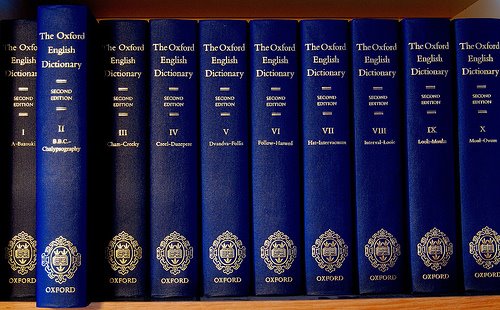Chaucer’s General Prologue
Lines 531-580
Group 12
Geoffrey Chaucer
Born in 1343 (London) and died in 1400.
English author, poet, philosopher, bureaucrat, courtier and diplomat.
He is best remembered for his unfinished narrative “The Canterbury Tales”.
He was influenced by the educated London dialect.
Main Points
Metrical analysis
--Rhyme
-Stress pattern
-Final -e
Phonology
-Phonetic changes (Great Vowel Shift)
Etymology
-Origin of words
-Function and lexical words.
-Archaic words
Metrical analysis
There is a rhyme scheme evident which is established in rhyming couplets.
Chaucer employs an AABB rhyme and an iambic ten-syllable per line scheme to set the rhythm (iambic pentameter).
-GP 579 Wor / thy // to / been // sty / ward(e)s // of / rent(e) // and / lond (10 syllables)
GP 580 Of / a // ny / lord // that / is // in / En // g(e) / lond (10 syllables)
This unit of rhyming is said to be a “foot” containing an unstressed syllable (x) followed by a stressed syllable (/) – x /, which is called an iamb, and there are five of these in a line of verse. Therefore a regular iambic pentameter line contains ten syllables of alternating unstressed and stressed syllables x/ /x / x / x / x / (de-DUM)
-GP 579 Wor / thy // to / been // sty / ward(e)s // of / rent(e) // and / lond (10 syllables)
GP 580 Of / a // ny / lord // that / is // in / En // g(e) / lond (10 syllables)
Lines of verse are not always absolutely regular, but with this pattern in mind, we have plenty of evidence in Chaucer’s verse about the number of syllables in words, and their pronunciation and stress patterns.
-GP 567 A / gen / til / MAUN / CI / PLE / was / ther / of / a / temple, (11 syllables)
GP 568 Of / which // a / cha // tours / myghte // ta / ke // e / xemple (10 syllables)
According to Chaucer, some final (-e) suffixes were pronounced, and some were not. Remember that a final (–e) before a word beginning with a vowel or (h-) is elided, and not pronounced.
-GP 577 That / we // ren / of // law(e) / ex // pert / and // cu / rious, (10 syllables)
GP 578 Of / which // ther / wer(e) // a / dus // zeyn(e) / in // that / hous (10 syllables)
Phonology
Spelling with
Byg/bigà/bɪg/ tyme/timeà/taɪm/ myhgt/mightà/maɪt/
Final –e is lost in spelling because it is pronouced with /ə/ or Ø.
Hadde/hadà/hæd/ lawe/lawà/lɔ:/ alle/allà /ɔ:l/
On the other hand, the addition of a final -e is the result of using the letter as a diacritic letter to mark a preceding long vowel, as Hart said.
Whit/whiteà /hwaɪt/ hous/houseà /haʊs/
Words with
Towne/townà /taʊn/ mouth/mouthà /maʊθ/
The vowel pronounced /u/ is sometimes spelt with
toà/tu:/ goodà/gʊd/
Middle English words with open /ɛ:/ are spelt in Modern English with
herte/heartà/hɑ:rt/ heep/heapà/hi:p/
Heed/headà/hed/ greet/greatà/grɛɪt/
According to Hart, some words have a double consonant to mark the preceding vowel as short.
ful/fullà/fʊl/ wel/wellà/wel/ shal/shallà/ʃæl/
Old English spelling and pronunciation of the low back vowel
Words with shifted towards /ɛ:/ or /e:/, and also to /eɪ/ in Present Day English.
Grace/graceà /greɪs/ sake/sakeà /seɪk/ pace/paceà /peɪs/
Some words of non-English origin adapted their form to the English phonology, according to the way they were pronounced.
Charitee-charity (
Etymology:
origin of words
OLD ENGLISH
OLD FRENCH
ANGLO-FRENCH
LATIN
OLD FRISIAN
ANGLO-NORMAN
Function and lexical words
Function words remain practically untouched in Present Day English maybe because they are the most used.
And: From Old English and, ond, with the original meaning of “thereupon, next”, from Proto-Germanic *unda (compare with Old Saxon endi, Old Frisian anda, Middle Dutch ende, Old High German enti, German und, Old Norse enn). It is cognated with Latin ante and German anti. The Middle English and the Modern English forms are identical, the conjunction and used to connect words or parts of sentences “also, I addition, added to, etc”.
Of: From Old English of, unstressed form of æf (preposition, adverb), meaning “away, away from”, from Proto Germanic *af- (compare with Old Norse af, Old Frisian af/ of, Dutch af and German ab), from Proto-Indo-European *apo- meaning “off, away”. In Middle English, as in Modern English, of is a preposition which expresses property, position, construction, opinion etc “belonging to, consisting of, coming from, etc”.
However, lexical words change their form in spelling and pronunciation most of the time.
Parfit: c.1225 (implied in perfectiun), from Old French parfit (11c.), from Latin perfectus "completed," pp. of perficere "accomplish, finish, complete," from per- "completely" + facere "to perform". Often used in Eng. as an intensive (perfect stranger, etc.). The Middle English form is parfit. In Modern English perfect.
So, we can conclude that there is variation in Chaucer because some words appear in the text with different spellings.
alle=al the negative particles no, ne, nat=not
hade=hadde
were=weren
ffor=for
ARCHAIC WORDS
We have noticed that there are some words that Chaucer uses in “The General Prologue” which have become nowadays obsolete words. Some examples of them are:
SWYNKERE-WORKER
WIGHT-CREATURE
PARDEE-INDEED (LITERAL TRANSLATION “BY GOD”)
JANGLERE-TALKER
BIBLIOGRAPHY
http://www.encyclopedia.com/doc/1O43-ChaucerGeoffrey.html
http://www.etymonline.com/
http://mindlace.net/tmp/ets.umdl.umich.edu/m/med/lookup.html Freeborn, Dennis. From Old English to Standard English. Third Edition. 2006.

No hay comentarios:
Publicar un comentario